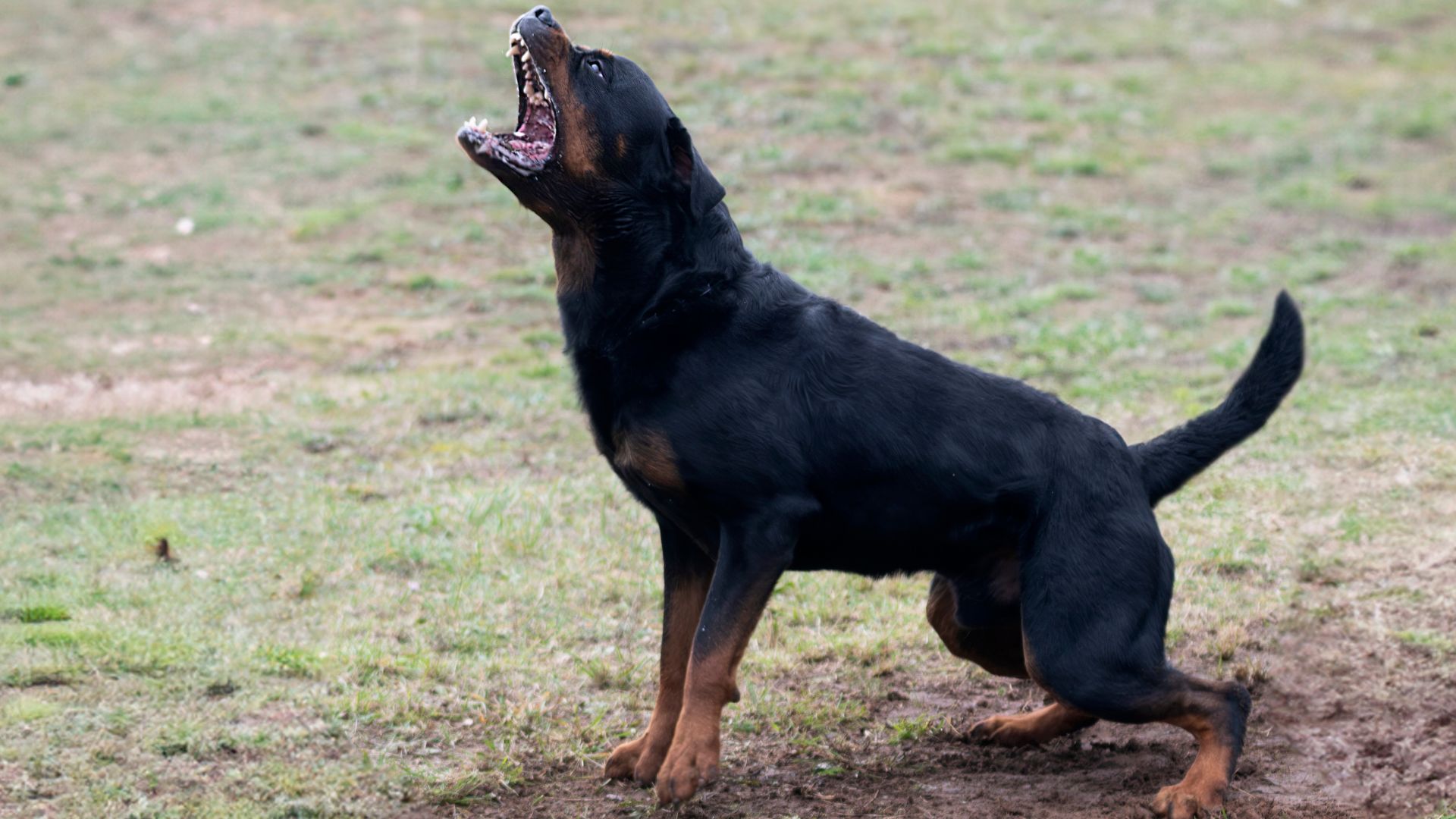Does your dog’s loud barking make you want to buy noise-cancelling earbuds? For some people, those ear-splitting “woof woofs” and growls can be too much to handle; others might see them as markings of a great guard dog.
Can you tell what your dog’s bark is trying to tell you by its tone and pitch? According to a 2006 study, many owners were able to interpret their pup’s yapping based on acoustic features; for example, they saw low-pitched barks as aggressive and high-pitched ones as fearful.
Not all dogs bark for the same reason, and in some cases, if your pup can’t keep it cool, the reason might be separation anxiety or something else it’s trying to express. Protective doggos often use vocalization to alert their humans of intruders or anything suspicious in the environment.
If you want a vigilant protection dog that will keep you updated about what’s going on with its sharp barks, here are 7 amazing breeds you can consider.
Loud Barking Dog Breeds Often Used As Guard Dogs
1. Scottish Terrier
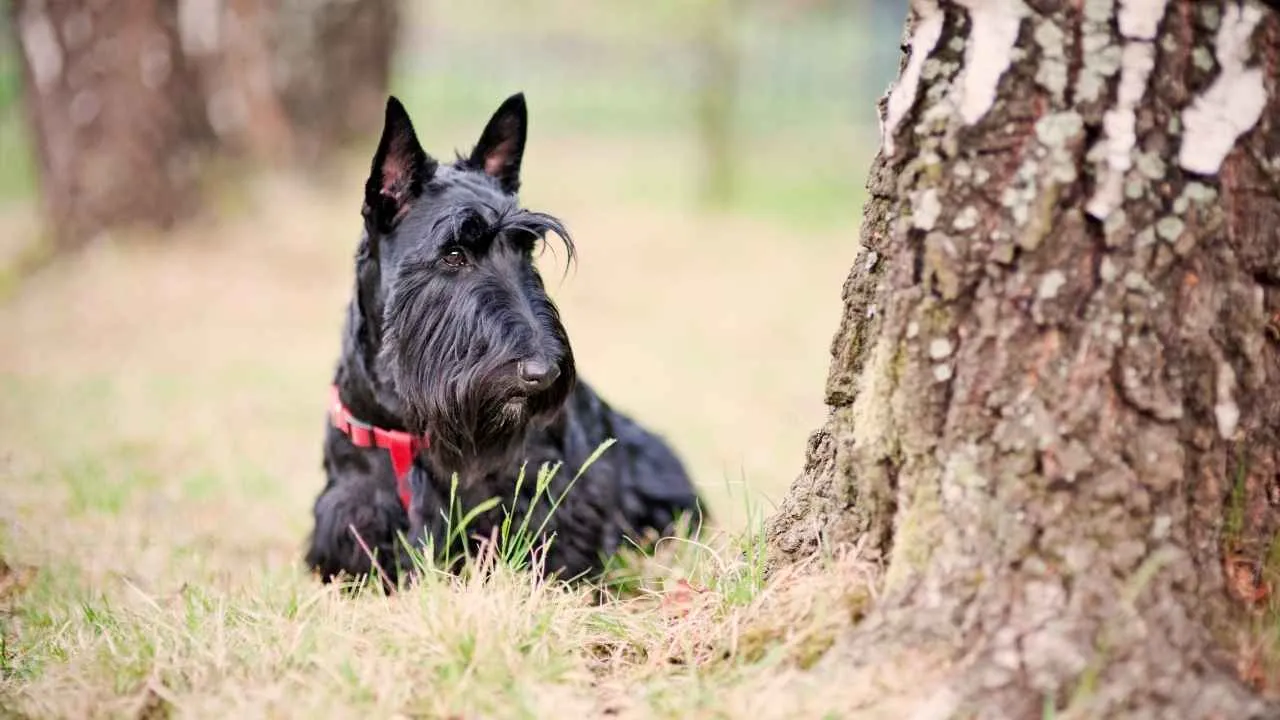
Scottish Terriers are small but resilient dogs and were originally bred to hunt vermin. They don’t just tend to dash after small prey due to their prey drive; they’re also very alert and possess strong protective instincts for their family members.
Scotties are high-spirited dogs with a wiry coat and pointy ears, which makes them catch our attention. They make loving and loyal companions, and despite their size, enjoy an outdoorsy life full of play sessions.
While Scottie’s love for chasing potential prey means you’ve got to keep them on a leash, they’re valuable companions as they’ll alert you to anything unusual with their sharp barks.
Most Scotties will go off mostly if they see a stranger (human or animal), but if they’re annoying your neighbors a bit too much, you can train them to cool down a little.
2. Shetland Sheepdog
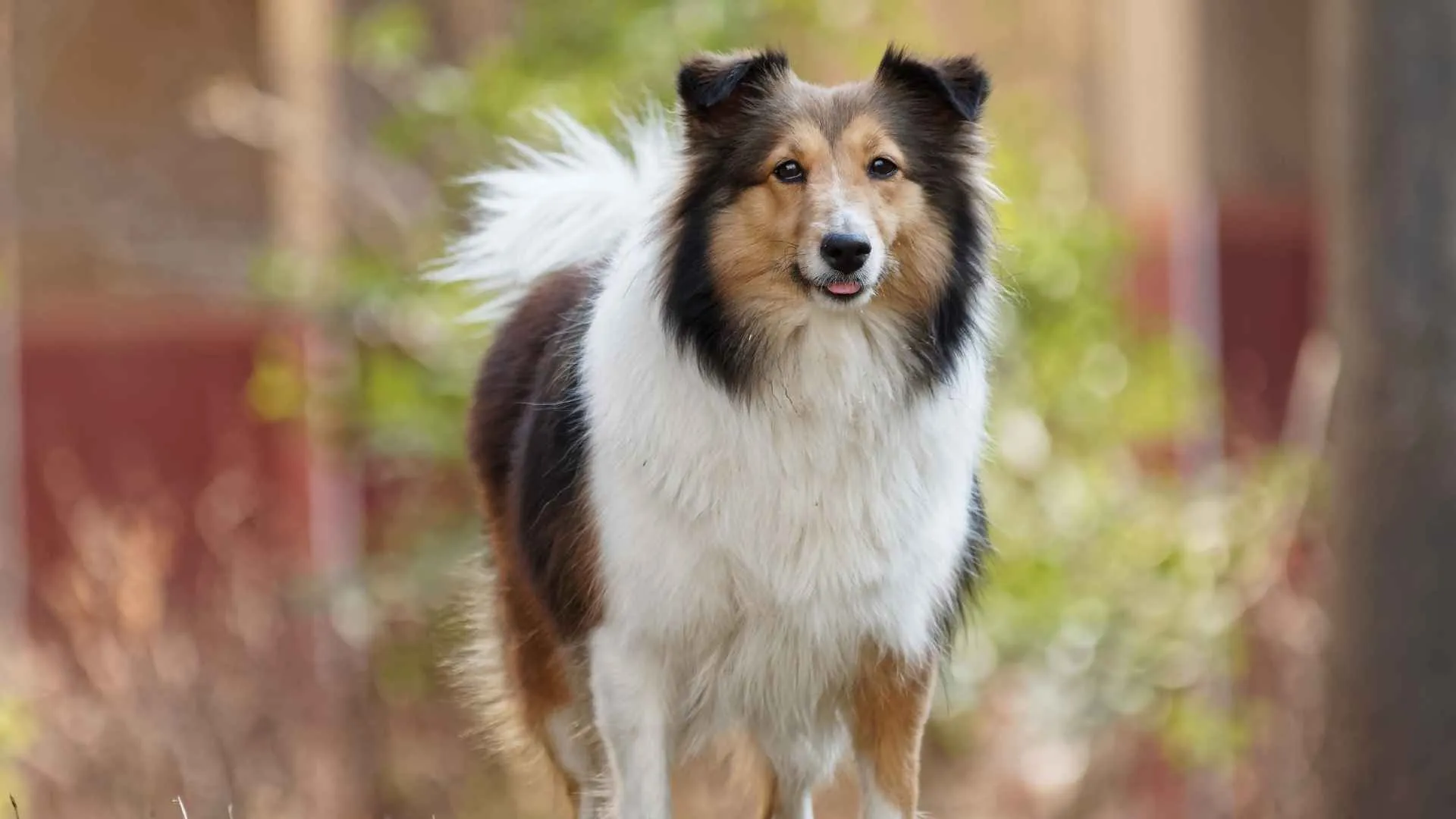
The Shetland Sheepdog is a breed that comes with excellent herding abilities. Shelties make excellent family pets with their sociable and playful nature; they don’t go bonkers around other dogs and get along well with everyone in the household.
Though they’re friendly, Shelties are dogs that have been used to guard livestock, which means the factory setting includes a tendency to be extremely protective. Shelties are loud barkers, which means you’ll need to train your ears to get used to their chatty temperament.
When they’re not using their vocal chords to alert you of danger, Shelties will get noisy when they’re bored. According to Britannica, they’re also very likely to get separation anxiety as they are really sensitive doggos.
3. Chihuahua

Chihuahuas can be a handful and aren’t really for the faint of heart with their spunky personalities and high energy levels. They do have a soft side when it comes to their pet parents; they can be quite lovey-dovey and enjoy snuggling close to their humans.
These pooches always look like they’re up to something (even when they’re not) with their expressive faces and big, round eyes. Their bat-like ears add to their comical persona, along with their “apple-shaped” heads.
Though they love to think for themselves, their fondness for their humans makes it possible for them to get proper training with positive reinforcement. What makes them effective guard dogs is their intelligent and alert nature, and their ability to let out loud barks when they’re uncomfortable.
4. Dachshund

Dachshunds are compact dogs with barks that can make intruders stop in their tracks and make your flatmates or neighbors grind their teeth in frustration. These short-legged dogs were originally bred to hunt vermin and still carry the instincts to track and chase small prey.
As badger hunting dogs, Dachshund or “Wiener dog” is a doggo with a sharp mind and super efficient scenting abilities. They can literally smell out when something’s unusual in the environment, which makes them a good choice for an excellent watchdog.

According to the AKC, Dachshunds shed moderately, which makes them easier to look after. So, if you want a comparatively low-maintenance and alert dog that can stay happy with some brief daily walks, this small dog breed is the best fit for you.
5. Yorkshire Terrier

If you think toy breeds can’t be good watchdogs, the Yorkshire Terrier is the pup that will change your mind. They’re not only one of the best dog breeds for people living in apartments, they are also very alert and fearless little pooches.
Yorkshire Terriers, in their untrimmed forms, look like they belong in some dog shampoo commercial, especially if their silky coat is well-groomed. As per Purina, they’re hypoallergenic doggos and shed only a little, which makes them great pets for people with allergies.
These small dogs were originally bred by Scottish weavers to take out rats; later on, they became ‘ladies’ lapdogs’ in England due to their looks and sweet temperament.
They can also be quite stubborn, though; early socialization is quite necessary in making them well-mannered. They’re fond of playing, especially games like fetch, and can be quite demanding when it comes to their pet parents’ attention.
6. Smooth Fox Terrier
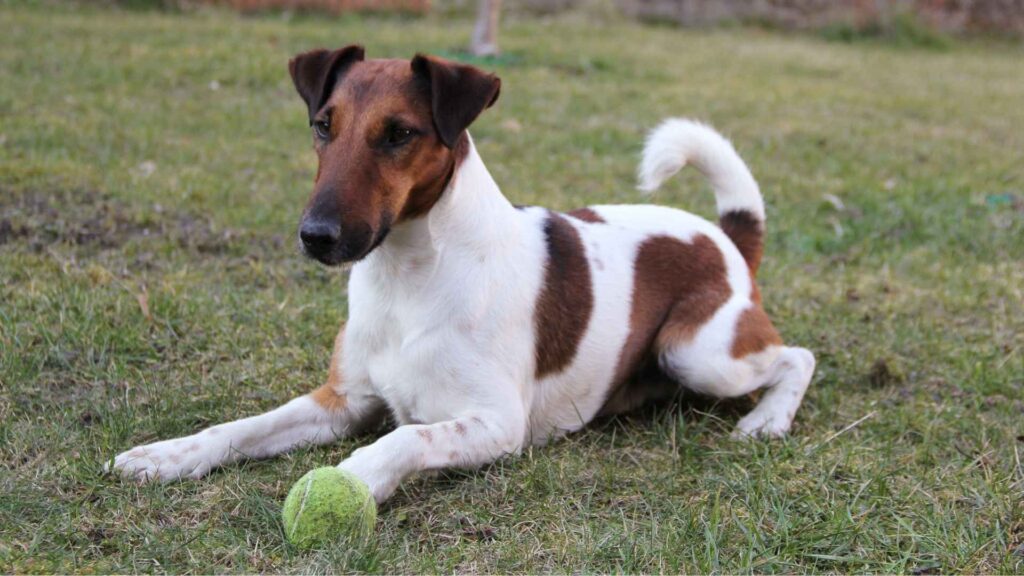
Smooth Fox Terriers have their origin in England, where they were small fox hunting dogs, and would flush out foxes from their dens. Nowadays, they make really friendly and people-oriented companion dogs, and also a popular choice of pets among apartment dwellers.
Despite being versatile and adaptable, these energetic pups need regular exercise and some outdoor time to stay happy. They’re generally good-natured pets, but as they do have a prey drive, it’s better to be careful if there are other pets, especially smaller ones, at home.
These pups can spend independent time, though they also love cozying up next to their owners. As these dogs bark a lot, you can count on them to keep you alert about literally anything unusual.
7. German Shepherd
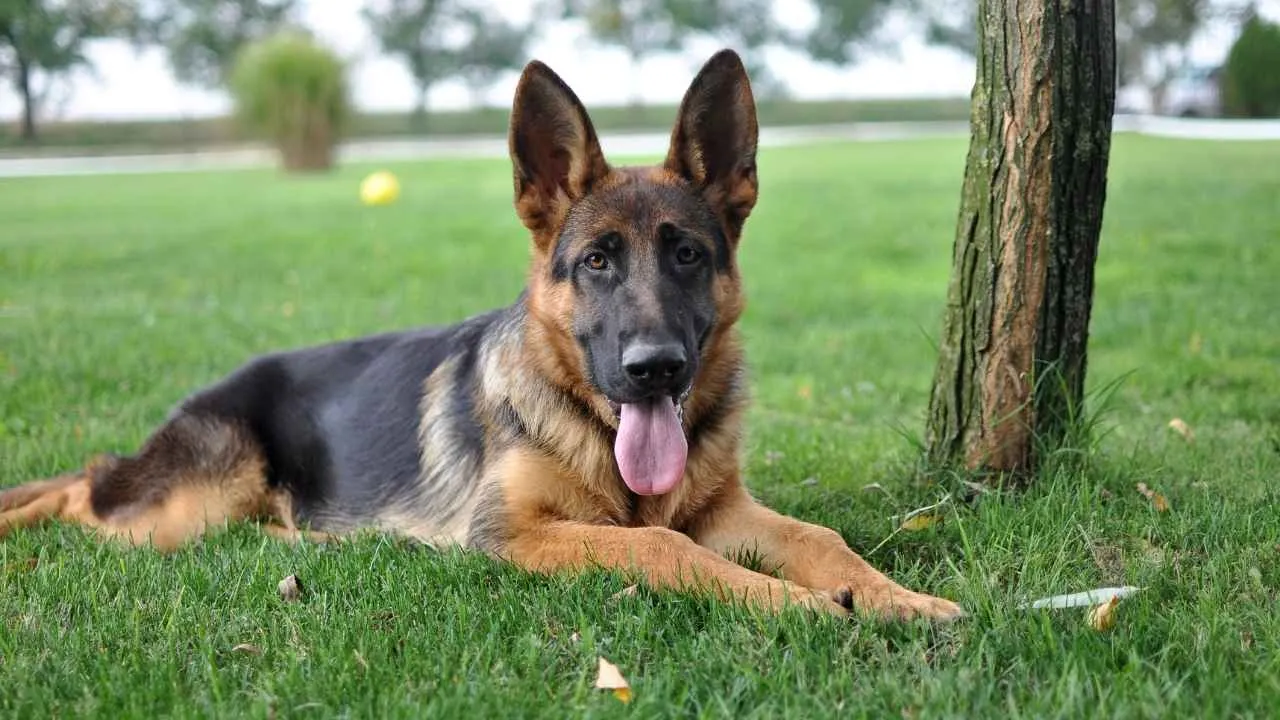
German Shepherds are dogs originally used to herd livestock, but they’re also one of the most popular guard dog breeds, due to their natural guarding instincts. They’re highly trainable and are often used in police forces and military work, as well as on search and rescue missions.
These dogs are cherished not just for being powerful but also for their ability to connect deeply with their pet parents. Though they look a bit intimidating, these incredibly loyal dogs love their humans enough to protect them even at the cost of their own lives.
The German Shepherd’s bark is its formidable weapon that doesn’t just inform its owner of danger, but also keeps off invaders. As an adaptable doggo, German can coexist with family pets like other dogs and even cats, especially if it’s been trained properly.
FAQs
1. Why do guard dog breeds bark more than others?
Dogs with natural protective instincts use vocalization to alert their owners.
2. Are loud barking guard breeds safe for families and children?
Though guard dogs can be devoted companions due to their protective nature, some loud dogs might disturb small children and older people.
3. Can training reduce excessive barking in guard dog breeds?
Yes. If a dog is barking excessively, proper training can help control this tendency.
Conclusion
If you’re wondering which guard dog is appropriate for your living environment and needs, talk to a vet or a breeder about your requirements. These loud barking pups might feel like trouble to some, but if you want an alert companionship, they’re going to be a rewarding addition to your household.
Remember that dogs aren’t the alternatives to a proper security system; they only enhance it with their watchful nature.


